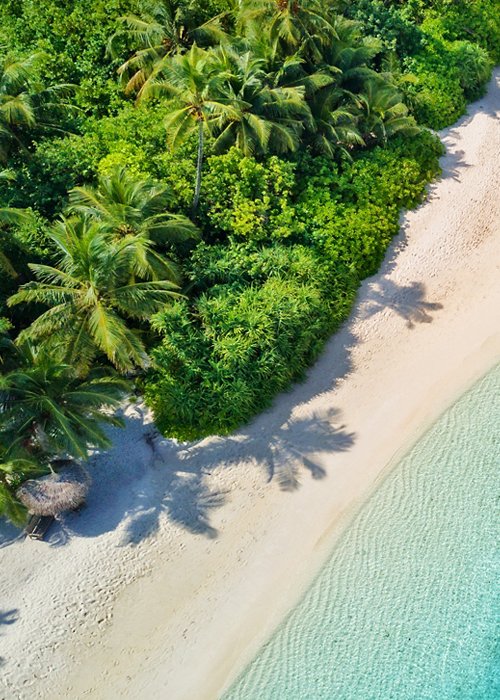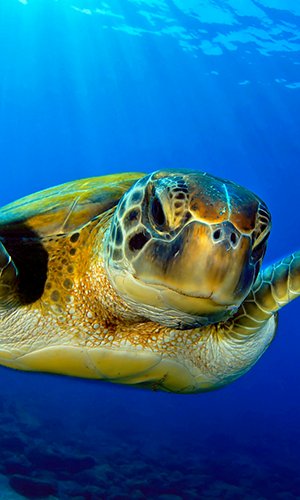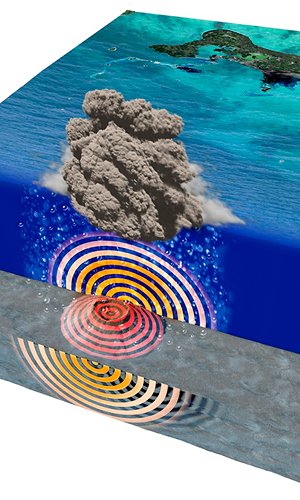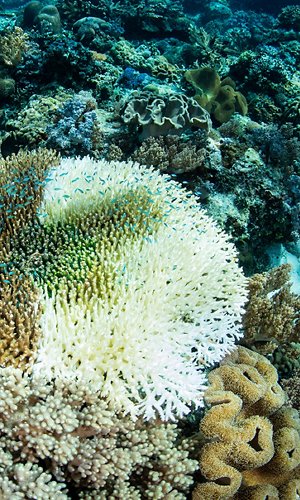We have been speaking of sustainable behaviours to apply to our daily life, but what happens when we unplug and go on holiday? The choice of a dreamlike location often distracts us from responsible habits we had with regard to the environment, that required so much effort to learn and such good intentions during the year, and we forget that instead the tourist sector is constantly growing and has local environmental and economic effects.
Voice search

Holidays, yes! but they must be sustainable!
Tourism
The activities connected with tourism are the most widespread economic sector in the world, and contribute directly and indirectly to approximately 7% of the world production, with millions of jobs all over the world. For many countries, tourism is one of the major sources of income and work. So it is important to make the public opinion more sensitive to the disturbing effect that a tourist inevitably has on the environment with which he/she interacts, and promote a responsible form of tourism, or ecotourism. In fact a characteristic of ecotourism is to preserve the natural riches, and one of its actions consists in identifying the ways to minimize any negative effects.
Environmental impacts of tourism
There are many different environmental impacts of tourism:
- impact on the landscape of the natural areas due to anthropization, urbanization and the construction of accommodation facilities and infrastructures that severely modify the territory;
- air, soil and water pollution;
- altered land and sea ecosystems, that cause a loss of biodiversity;
- noise pollution;
- production of waste.
What is sustainable tourism?
In the 1987 Brundtland Report, the first definition of Sustainable Development is given by the WCED (World Commission on Environment and Development) and the concept of Sustainable Tourism refers precisely to that definition. The World Tourism Organization, the United Nations and other international organisms have identified the principal conditions that an ecotourist project must satisfy:
- to ensure that it contributes to the conservation and the sustainable development of the territories and the neighbouring communities;
- to guarantee the participation of the local communities in all the phases of an ecotourist project;
- to minimize the negative impact that the accommodation, transportation services and any activities that are organized for the tourists may have on the natural and cultural environment;
- to ensure that a reasonable amount of the income generated by the activities connected with tourism is given to the local communities and for preservation of the natural heritage;
- to increase the awareness that tourism can be carried out in various manners that respect the environment and that are socially responsible.
Sustainable holiday
It must be pointed out that it is possible to be sustainable and not weigh on the planet, by following some suggestions when on holiday, here below are a few.
Choice of the destination and of the facilities
Whatever may be our destination, we must not forget to respect the places we visit and the populations that live there. In the Countries that base their economy on tourism, at times the local populations do not draw any economic benefit from the presence of large tourist resorts and they are often underpaid. In the “All inclusive” trips, in fact, 80% of the expenses are for the air fare, accommodation and for the large tourist companies while, instead, the eco-sustainable accommodation facilities employ local staff and use local products, and contribute up to 95% of the expenses of the trip to the economy of the Country. Furthermore, the large villages and resorts have a remarkable impact on the environment, and use an enormous amount of energy and resources. In many accommodation facilities, energy costs are the second largest expense after the salaries. Consider the large use of technology in order to offer modern commodities that require a large amount of energy, as for example the air conditioning, the bar-fridge, the kitchenette etc. In fact in the accommodation facilities 45 to 65% of the energy is used for electricity, 20-30% is used for the air-conditioning, the refrigerator and TV 4-10%, and for the dishwasher 2-10%.
Choice of the type of transportation
Prefer train transportation to air transportation wherever possible. In fact the train pollutes up to ten times less than a plane. It has been calculated that the short range flights, are proportionately much more polluting. In fact most of the carbon dioxide is freed in the initial and final phases of the flight. Furthermore planes release large amounts of water vapour at the high altitudes, where they remain for a long time. During the holidays, make the best of your time and move around on foot or by bicycle. It is surely more pleasant to move around this way, and you have the possibility to fully appreciate the environment you are in, but mainly the emissions of carbon dioxide in the atmosphere are reduced, and this contributes actively to the battle to prevent climate changes. In case it is indispensible to use a car, organize your trip so that you travel with other people. The factors regarding the emissions of the different modes of transport are as follows:
- car: 237 grams of carbon dioxide per kilometre;
- plane: 150 grams of carbon dioxide per kilometre;
- motorcycle: 90 grams of carbon dioxide per kilometre;
- bus: 75 grams of carbon dioxide per kilometre;
- train: 45 grams of carbon dioxide per kilometre;
- bicycle: 0 grams of carbon dioxide per kilometre;
- on foot: 0 grams of carbon dioxide per kilometre.
Sustainable food
For us Italians, food is of fundamental importance during a holiday, in fact it often occurs that when we return from a trip to faraway places, our friends or parents ask us what we ate, how, and with whom. To travel means knowing different people and populations, and one of the first points of contact in fact is food. To sit with other people and taste the local dishes are actions that introduce one to the local experiences of collective life. Therefore, prefer local food prepared with products of the area, in this way we will avoid the negative impacts on the environment that are due, for example, to the long distances that often food must travel in order to enable us to eat “Italian”, even thousands of kilometres away from our country. Also try to be careful in choosing the local food. In particular, avoid eating dishes that contain turtle meat, eggs or fat, as in the famous “turtle soup”. This must be avoided in particular in Indonesia and Bali where, alas, there still is a market, for tourists, of this magnificent animal that risks extinction. Furthermore do not eat dishes made with sharks, such as the famous shark fin soup. All the species of tropical and subtropical sharks may totally disappear due to the indiscriminate fishing, in order to supply the Chinese restaurants all over the world. Lastly, do not exaggerate in your consumption of lobsters only because they are less costly in the Tropics. European and American tourists have led to a consistent decrease in these crustaceans in many tropical seas.
Forget these souvenirs
Not everyone knows that taking home a souvenir of a species at risk, such as a coral or a turtle is an infringement of the law. In fact the Washington Convention on International Trade in Endangered Species of Wild Fauna and Flora, includes over 30,000 prohibitions, The sale of items that are derived from animals at risk of extinction (tigers, leopards, cheetahs, elephants, rhinoceroses, whales, butterflies, corals, turtles, etc.) is prohibited. Therefore, often the purchase of goods in exotic Countries without paying due attention, may cost you dearly. If you return home, for example, with a small turtle from the Maldives, this could cost you a fine up to 1000 dollars and in some cases you might even be arrested. In many tropical countries, it is even forbidden to pick up dead corals and shells that are on the beach (as in Kenya or the Maldives). Furthermore do not take away any living or dead organism that is part of the reef. Corals, shells and starfish are much more beautiful when they are alive and in their habitat, rather than adorning the top of furniture in our homes.
A rational use of water
Excessive use of water can deteriorate the local water resources, jeopardizing the availability of water for the resident population. Problems may increase in areas in which the tourist season coincides with the season with poor rainfall. In an accommodation facility, 37% of the water is used for bathrooms and 21% for the kitchen.
Therefore let us remember the usual important habits:
- Prefer a shower to a bath. In fact every time you have a bath, you use up to 150 litres, for a shower you use only 50 litres.
- Turn off the water when you are washing your teeth, a tap that is left open when you are washing your teeth leads to a waste of approximately 2500 litres of water a year, per person.
- Use shampoos and soaps sparingly, and if you can, choose the ones that are least polluting. If you are in a tropical area near a coral reef, this last advice becomes compulsory.
Separate and take home
Hotels and accommodation facilities produce an immense amount of waste, in the form of leftover food, expendable products (single doses), products used for cleaning and maintenance, which at times are even toxic. The problem of waste is particularly important in the small islands. Think, for example of those heavenly small atolls in the middle of the ocean whose capacity doubles or even triples during the peak tourist seasons. In some cases the elimination of waste can be a real problem when the rubbish dumps are far away or when there are none. Therefore, even when you are on holiday, do not forget to separate your waste products, and if possible take home any empty shampoo or soap containers and exhausted batteries. In this way you will be sure that your waste products will be eliminated correctly and that you will not overload the rubbish in an area that may have a precarious balance.
Save energy like you do at home
The mere fact that your holiday is “all inclusive” does not mean that you must exaggerate, for example in case of the electricity. Do not leave the air conditioner and the lights on when you leave your hotel room, it is a useless waste of energy and contributes to the increase in carbon dioxide, that affects the climate changes and therefore the survival of many organisms.
Respect the environment
A holiday is a good occasion to draw closer to nature, to visit the areas of the Planet that are still not contaminated, as for example the last great primary forests and also to have exciting encounters with particular animals. When touring try to leave as few traces of your passage as possible and do not degrade the environment you are in; a forest that is full of rubbish kills many more living creatures than you can imagine. If you smoke, never throw your cigarette on the ground, nor in the sand or in the sea; the filter of a cigarette, in fact, takes from one to five years to degrade . Furthermore if you are lucky to meet some wild animals, do not feed them, you may alter the delicate balance of the food chain and involuntarily cause their death. It is surely exciting to look at a fish eating breadcrumbs from your hands, but these animals will never find this type of food in nature, which furthermore, makes their stomachs swell and can often be the cause of deadly diseases. Always remember that in any natural environment you may be, in a forest or in the sea, we are guests and as such we must respect all forms of life, including whatever may seem insignificant to us – therefore do not pick flowers that are surely more beautiful when they are alive in the middle of the grass than in a vase at home, about to die. Lastly, try to convey to those who are near you, love and respect for nature, and also all that you have learnt on the subject. It is easier to love the things you know and it is easier to protect what you love!



